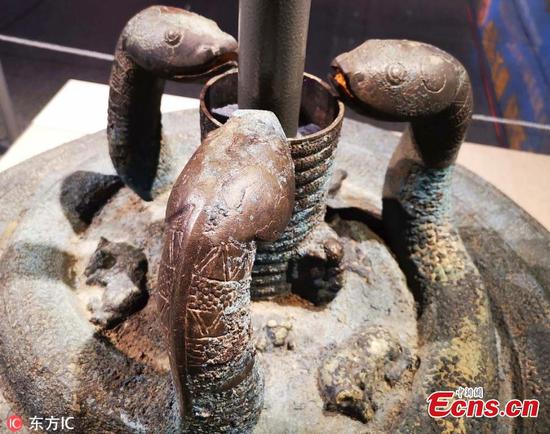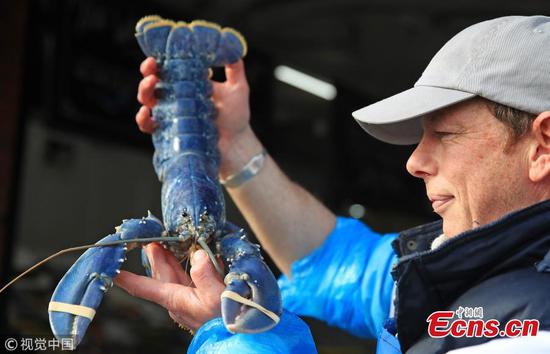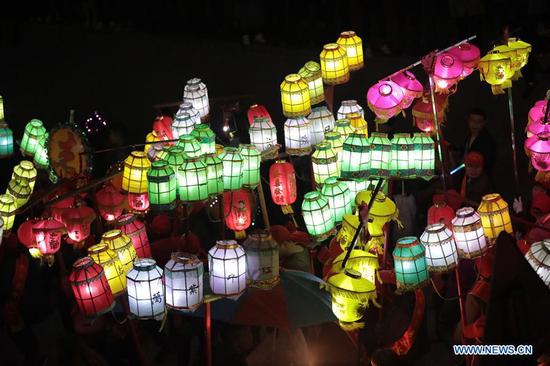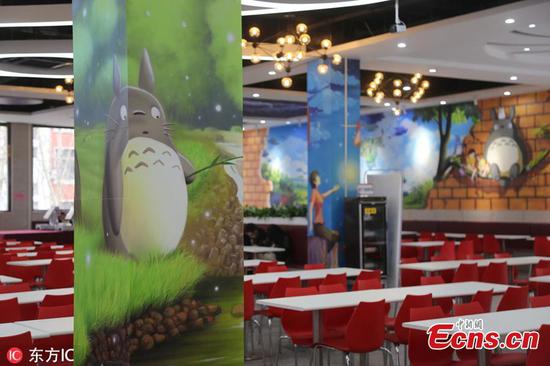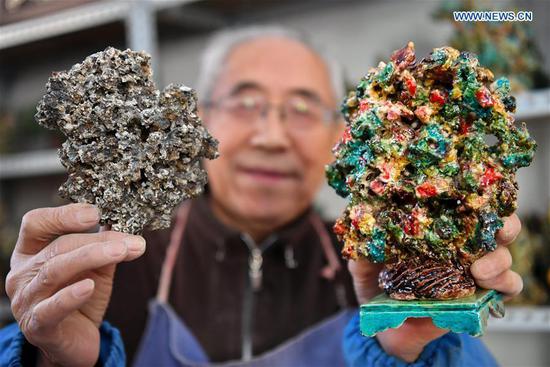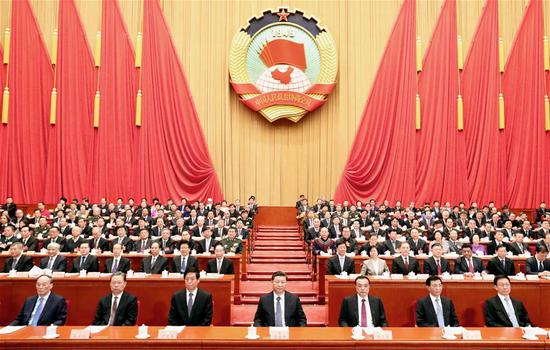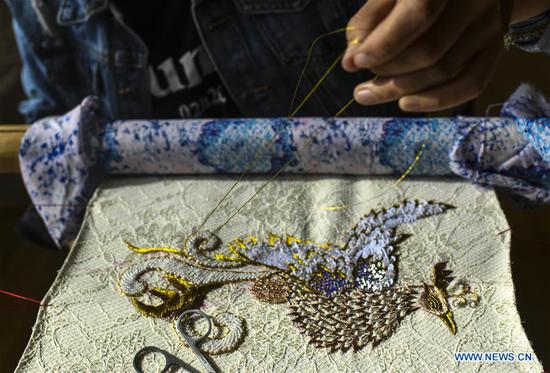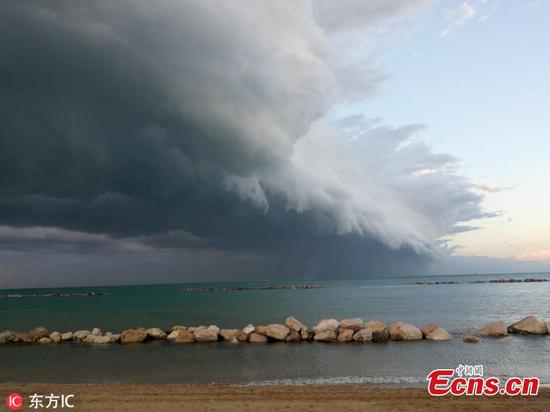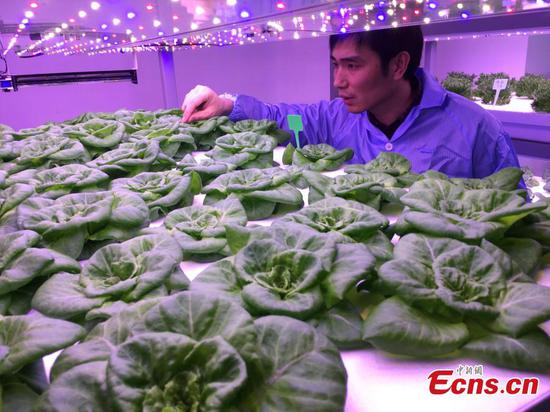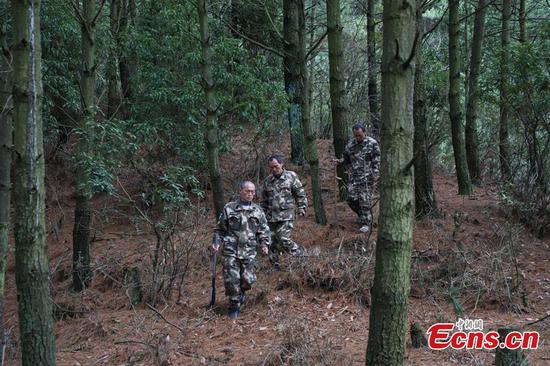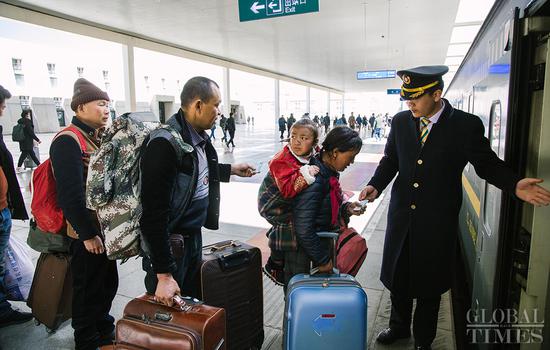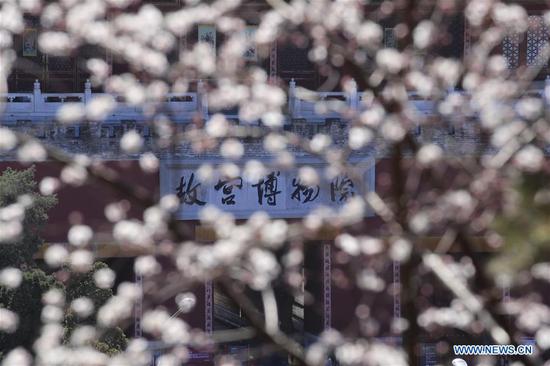As March 29 approaches, one of the biggest concerns among British people about life after exiting the European Union is the potential for food shortages and price rises.
Post-Brexit worries have caused panic among some, with institutes offering post-Brexit workshops, stores selling Brexit food survival kits, and people stockpiling food.
Emergencyfoodstorage.co.uk, which claims to be the United Kingdom's No 1 emergency preparedness company, sells various Brexit food boxes, including a "deluxe Brexit box" containing 60 servings of main meals, 48 portions of meat, and water filters.
"It has a lifespan of up to 25 years – this really is the best you can get when being prepared for Brexit," the website says.
With some British citizens starting to hoard food, the Guardian has published a no-deal Brexit survival guide, which tells readers what food they should be hoarding.
"So, stockpiling – despite its slightly hysterical, end-of-the-world connotations – might be a sensible thing to do," it concludes.
The Institute of Export &International Trade even offers a post-Brexit planning workshop aimed at people in all areas of international trade who should attend "to enable companies to be aware of the potential impact the changes may have and the best way to prepare for them".
Statistics shed light on why some people are panicking.
According to gov.uk, the UK's government services and information website, half of the food consumed in the country in 2017 originated outside the UK, and 30 percent was from EU member states. The UK imports 90 percent of its lettuce, 80 percent of its tomatoes, and 70 percent of its soft fruits, according to the British Retail Consortium. Only 57 percent of vegetables and 16 percent of fruits consumed in the UK are produced locally.
Major food retailers including Sainsbury's and Asda signed an open letter to the British Retail Consortium in January, warning that stores' ability to stockpile fresh food is limited and noting that the UK is reliant on EU produce.
"We are extremely concerned that our customers will be among the first to experience the realities of a no-deal Brexit," the letter says.
And the situation is not likely to be any better at the butcher's counter.
The Agriculture and Horticulture Development Board, which is also known as the AHDB, noted in Brexit analysis in January: "A ‘no-deal' scenario could have a seismic impact on UK trade in agricultural products and, subsequently, major implications for all of the UK's agricultural sectors."
The organization, which provides market information about the UK and its import and export markets, said: "It is crucial that this is understood by farmers and policymakers if disruption throughout the industry is to be avoided."
Taking beef as an example, the UK is both a big importer and exporter of the product but remains a net importer. It exported about 0.78 million tons of beef between 2013 and 2017, which was worth around 2.3 billion pounds ($3 billion).
According to IHS Maritime &Trade-Global Trade Atlas data, the UK is among the world's eight largest beef exporters. Between 2013 and 2017, an average of 82 percent of its beef exports went to EU countries, in particular to Ireland, the Netherlands, France, and Germany.
Most UK beef imports are from EU member states and, if the UK decided to impose tariffs, domestic prices could rise, predicts Duncan Wyatt, a lead analyst at AHDB.
Tariffs could, in theory, double the price of beef exports and greatly reduce the product's competitiveness among EU consumers.
In addition to the price rises, the UK would, in a no-deal scenario, need to register as a "third country" at the EU, and its exports of beef and other products with an animal origin would need to have export health certificates approved by the EU.
Chinese customers could be part of the solution. Beijing lifted its 20-year ban on British beef imports in June, which was imposed following the outbreak of BSE in the UK in the 1990s.
The AHDB predicts trade with China could be worth 250 million pounds per year, if market access negotiations involving the UK conclude successfully.
While the possibility of price rises and shortages may sound threatening, there are few significant signs, so far, of change among British shoppers.
Borough Market, which is located on the south side of London Bridge and which features a wide range of specialty foods including much from European countries, boasts Italian ham, French cheese, Greek honey, and Dutch flowers among other things.
One local trader runs a beer store and sells imported products from Germany, Belgium, and other EU countries.
He said: "Nobody knows what will happen. I won't do anything until I have to. What will be, will be."
And Christy Balatsiou, who works at Oliveology, a store selling Greek honey at Borough market, said: "It depends on the producers and how much it's gonna cost."
She said the company is not stocking more honey, even though it might have to pay more for its stock in future, because, in the food industry, quality is most important and perishables cannot be stored for long.
"We will change accordingly if Brexit makes any influence," she added.
"Business is unlikely to feel the effects immediately," the AHDB suggests. For example, a sheep farmer raising lambs at the moment has no way of knowing whether the autumn selling price will be lower than anticipated.
Tariffs imposed in a no-deal situation could account for around 50 percent of the price of UK sheep meat, making it uncompetitive in the EU market, something that could cause the selling price to fall in the UK by as much as 25 percent.
Philip Morley, a technical officer at the British Tomato Growers Association, thinks that, in the short-term, tomato growers will have to reduce their margins, which he says are already paper-thin.
"If the situation persisted, retailers would have to take their share of cost increases, and ultimately, so too would consumers," he said.
Contact the writer at yandongjie@chinadaily.com.cn









